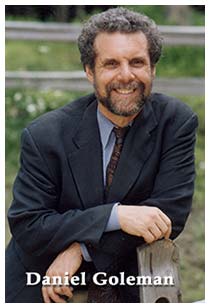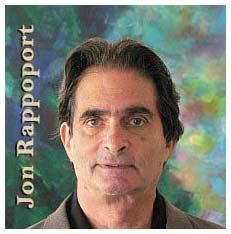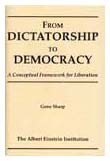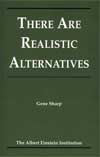From Dictatorship To Democracy - By Dr. Gene Sharp
Published: June 11, 2013
FROM DICTATORSHIP TO DEMOCRACY, A Conceptual Framework for Liberation by Gene Sharp - Published by the Albert Einstein Institution of Boston, Mass - FULL AudioBook | Greatest Audio Books - From Dictatorship to Democracy, A Conceptual Framework for Liberation is a book-length essay on the generic problem of how to destroy a dictatorship and to prevent the rise of a new one. The book was written in 1993 by Gene Sharp (b. 1928), a professor of political science at the University of Massachusetts. The book has been published in many countries worldwide and translated into more than 30 languages. Editions in many languages are also published by the Albert Einstein Institution of Boston, Massachusetts. This is the Fourth United States Edition, published in May 2010. The book has been circulated worldwide and cited repeatedly as influencing movements such as the Arab Spring of 2010--2012. (Summary by Wikipedia)
From Dictatorship to Democracy, A Conceptual Framework for Liberation is a book-length essay on the generic problem of how to destroy a dictatorship and to prevent the rise of a new one. The book was written in 1993 by Gene Sharp (b. 1928), a professor of political science at the University of Massachusetts. The book has been published in many countries worldwide and translated into more than 30 languages. Editions in many languages are also published by the Albert Einstein Institution of Boston, Massachusetts. This is the Fourth United States Edition, published in May 2010. The book has been circulated worldwide and cited repeatedly as influencing movements such as the Arab Spring of 2010–2012. Full Audio Books - Greatest Audio Books recording is in the public domain, free download: http://librivox.org/from-dictatorship...
Download Free PDF Copy of From Dictatorship to Democracy - in English
Download a free copy of the: -- From Dictatorship to Democracy - in English
Download Free PDF Copy of From Dictatorship to Democracy - Farsi / Persian
Download a free copy of the: -- From Dictatorship to Democracy - in Farsi-Persian
There Are Realistic Alternatives - in English
Download a free copy of the: -- There Are Realistic Alternatives - in English
Rich People Just Care Less
Tuning in to the needs and feelings of another person is a prerequisite to empathy, which in turn can lead to understanding, concern and, if the circumstances are right, compassionate action.
- By DANIEL GOLEMAN - October 5, 2013 - The New York Times
 Turning a blind eye. Giving someone the cold shoulder. Looking down on people. Seeing right through them.
Turning a blind eye. Giving someone the cold shoulder. Looking down on people. Seeing right through them.
These metaphors for condescending or dismissive behavior are more than just descriptive. They suggest, to a surprisingly accurate extent, the social distance between those with greater power and those with less — a distance that goes beyond the realm of interpersonal interactions and may exacerbate the soaring inequality in the United States.
A growing body of recent research shows that people with the most social power pay scant attention to those with little such power. This tuning out has been observed, for instance, with strangers in a mere five-minute get-acquainted session, where the more powerful person shows fewer signals of paying attention, like nodding or laughing. Higher-status people are also more likely to express disregard, through facial expressions, and are more likely to take over the conversation and interrupt or look past the other speaker.
Bringing the micropolitics of interpersonal attention to the understanding of social power, researchers are suggesting, has implications for public policy.
Of course, in any society, social power is relative; any of us may be higher or lower in a given interaction, and the research shows the effect still prevails. Though the more powerful pay less attention to us than we do to them, in other situations we are relatively higher on the totem pole of status — and we, too, tend to pay less attention to those a rung or two down.
A prerequisite to empathy is simply paying attention to the person in pain. In 2008, social psychologists from the University of Amsterdam and the University of California, Berkeley, studied pairs of strangers telling one another about difficulties they had been through, like a divorce or death of a loved one. The researchers found that the differential expressed itself in the playing down of suffering. The more powerful were less compassionate toward the hardships described by the less powerful.
Dacher Keltner, a professor of psychology at Berkeley, and Michael W. Kraus, an assistant professor of psychology at the University of Illinois, Urbana-Champaign, have done much of the research on social power and the attention deficit.
Mr. Keltner suggests that, in general, we focus the most on those we value most. While the wealthy can hire help, those with few material assets are more likely to value their social assets: like the neighbor who will keep an eye on your child from the time she gets home from school until the time you get home from work. The financial difference ends up creating a behavioral difference. Poor people are better attuned to interpersonal relations — with those of the same strata, and the more powerful — than the rich are, because they have to be.
While Mr. Keltner’s research finds that the poor, compared with the wealthy, have keenly attuned interpersonal attention in all directions, in general, those with the most power in society seem to pay particularly little attention to those with the least power. To be sure, high-status people do attend to those of equal rank — but not as well as those low of status do.
This has profound implications for societal behavior and government policy. Tuning in to the needs and feelings of another person is a prerequisite to empathy, which in turn can lead to understanding, concern and, if the circumstances are right, compassionate action.
In politics, readily dismissing inconvenient people can easily extend to dismissing inconvenient truths about them. The insistence by some House Republicans in Congress on cutting financing for food stamps and impeding the implementation of Obamacare, which would allow patients, including those with pre-existing health conditions, to obtain and pay for insurance coverage, may stem in part from the empathy gap. As political scientists have noted, redistricting and gerrymandering have led to the creation of more and more safe districts, in which elected officials don’t even have to encounter many voters from the rival party, much less empathize with them.
Social distance makes it all the easier to focus on small differences between groups and to put a negative spin on the ways of others and a positive spin on our own.
Freud called this “the narcissism of minor differences,” a theme repeated by Vamik D. Volkan, an emeritus professor of psychiatry at the University of Virginia, who was born in Cyprus to Turkish parents. Dr. Volkan remembers hearing as a small boy awful things about the hated Greek Cypriots — who, he points out, actually share many similarities with Turkish Cypriots. Yet for decades their modest-size island has been politically divided, which exacerbates the problem by letting prejudicial myths flourish.
In contrast, extensive interpersonal contact counteracts biases by letting people from hostile groups get to know one another as individuals and even friends. Thomas F. Pettigrew, a research professor of social psychology at the University of California, Santa Cruz, analyzed more than 500 studies on intergroup contact. Mr. Pettigrew, who was born in Virginia in 1931 and lived there until going to Harvard for graduate school, told me in an e-mail that it was the “the rampant racism in the Virginia of my childhood” that led him to study prejudice.
In his research, he found that even in areas where ethnic groups were in conflict and viewed one another through lenses of negative stereotypes, individuals who had close friends within the other group exhibited little or no such prejudice. They seemed to realize the many ways those demonized “others” were “just like me.” Whether such friendly social contact would overcome the divide between those with more and less social and economic power was not studied, but I suspect it would help.
Since the 1970s, the gap between the rich and everyone else has skyrocketed. Income inequality is at its highest level in a century. This widening gulf between the haves and have-less troubles me, but not for the obvious reasons. Apart from the financial inequities, I fear the expansion of an entirely different gap, caused by the inability to see oneself in a less advantaged person’s shoes. Reducing the economic gap may be impossible without also addressing the gap in empathy.
Daniel Goleman, a psychologist, is the author of “Emotional Intelligence” and, most recently, “Focus: The Hidden Driver of Excellence.”
NSA at work: Do you have a secret "social profile?"
- By Jon Rappoport - October 2, 2013
 Do you know a grape grower in France? An activist in England?
Do you know a grape grower in France? An activist in England?
NSA may have built an extensive social profile on you.
The NY Times reports (9/28): "NSA Gathers Data on Social Connections of US Citizens."
It's a long piece, and it's pinned to the idea that the NSA can track US residents who are connected to "foreign citizens of interest."
Presumably this means the foreign citizens are suspected terrorists. Well, not necessarily. No.
As is often the case with the NY Times, the real nuggets are buried down deep in the story. So I've dug them out and assembled them more cogently. In other words, I've re-edited the Times piece to make things clearer. You're welcome.
Do NSA's foreign targets have to be suspected terrorists? To get on the radar, qualifications "could include anything from ties to terrorism, weapons proliferation or international drug smuggling to...[being] foreign politicians, business figures or activists."
Boom.
Get the picture? NSA is spying on foreign politicians, business people, and activists. That's a broad population. And of course, activists could be stumping for a wide variety of causes, including the right to privacy from snoopers.
By implication, that means NSA could shape a social profile of any American with serious or casual ties to these politicians, business people, and activists. So much for believing NSA would only target Americans with connections to foreign terror suspects. That's a fairy tale for the masses.
Next topic: When the NSA shapes a social profile of an American, how far can they go? What can they access? How much of that person's life can they invade?
Well, emails and phone records, right? Sure. Is that it? Not by a long shot.
"...bank codes, insurance information, Facebook profile, passenger manifests, voter registration rolls and GPS location information [where you are right now], as well as proprietary records and unspecified tax data."
The NSA states they have a profile template of "164 relationship types...using queries like 'travelsWith, hasFather, sentForumMessage, employs.'"
Translation: NSA builds a social profile of a person by spying to obtain info on 164 categories of activity, behavior, and status of that target.
How do you like it?
You could be an acquaintance of a businessman in France. The NSA has targeted him, and they've come across you in the process---so they access all the data and records mentioned above, to come at you on 164 vectors.
To put the cherry on the cake, your "phone and email logs...allow [NSA] analysts to...acquire clues to religious or political affiliations...regular calls to a psychiatrist's office, late-night messages to an extramarital partner..."
Blackmail, anyone?
Yes, you say, this is horrible, but NSA's spying activity only covers a relatively few Americans. Wrong. Let's go to another quote from the Times article:
An NSA program called Mainway "in 2011 was taking in 700 million phone records per day. In August 2011, it began receiving an additional 1.1 billion cellphone records daily from an unnamed American service provider under Section 702 of the 2008 FISA Amendments Act, which allows for the collection of the data of Americans if at least one end of the communication is believed to be foreign..."
And that's not enough. No. "...the agency [NSA] is pouring money and manpower into creating a metadata repository capable of taking in 20 billion 'record events' daily and making them available to NSA analysts within 60 minutes."
One subject the Times article didn't cover: what happens when the NSA assembles a profile on an American who has casual ties to, say, a European businessman? Are they going to stop there? What about that American's social connections here in the US? The American knows the cousin of a lawyer who's speaking out against government surveillance. That cousin knows the mother of a child who was suspended from school for displaying the picture of a gun on his computer...
Obviously, NSA wants the ability to spy on everybody all the time.
But don't worry. Keith Alexander, the head of NSA, assures us that everything the Agency is doing is legal, above-board, and necessary to keep us safe.
By "safe," he means: NSA will spy on us 24/7 so the information can be used to create one huge system of tracking and control. Control of life. Regulated life. Algorithms that determine the shape of the dystopia we are entering.
Jon Rappoport
The author of two explosive collections, THE MATRIX REVEALED and EXIT FROM THE MATRIX, Jon was a candidate for a US Congressional seat in the 29th District of California. Nominated for a Pulitzer Prize, he has worked as an investigative reporter for 30 years, writing articles on politics, medicine, and health for CBS Healthwatch, LA Weekly, Spin Magazine, Stern, and other newspapers and magazines in the US and Europe. Jon has delivered lectures and seminars on global politics, health, logic, and creative power to audiences around the world. You can sign up for his free emails at NoMoreFakeNews.com. This email address is being protected from spambots. You need JavaScript enabled to view it.
What Does a Government “Shutdown” actually Means? What You Need To Know
- By Ben Swann - October 1, 2013
Congress did not approve a spending bill to fund the government as of midnight, which means right now, parts of the federal government are shutdown. So, what does this actually mean?
The fiscal year for the U.S. federal government runs October 1st - September 30th. In order to keep things functioning as normal, Congress needed to pass a temporary spending bill before October 1, 2013… they did not.
So what happens now?
Well, despite the claims of the sky will be falling as a result of the shutdown, not too much will change. The mail will continue to come. The military will continue to be paid, Social Security checks will continue to be sent out and Veterans hospitals will remain open.
Who decides which parts of the government remain open and which close?
It is all comes down to the designation of “essential” and “non-essential” parts of government. Of the roughly 3.3 million government employees, most are considered “essential”. Therefore, the shutdown will not affect them in the long-term. The “essential” employees will be paid regardless of how long the shutdown continues but their checks may be delayed. At the end of the shutdown, those employees should receive retroactive pay. That is not the case, however, for the roughly 1.5 million active duty military members who will be paid no matter what.
In addition, those who will continue to be paid during the shutdown, the President and members of Congress, though members of their respective staffs could be furloughed because they might be considered “non-essential”. Congressional pay cannot be touched.
Which parts of the government will remain open?
Any employee or office who provide a “national security” function or “foreign relations essential to national security” are exempt. Therefore, military is still paid and U.S. embassies will remain open.
Also, the U.S. Border Patrol will continue to operate along with air traffic control, federal prisons, federal law enforcement, operation of the power grid, and guarding of federal property. Why? Because any employee who conducts “essential activities that protect life and property” are also exempt from the shutdown.
Which parts of the government will close?
About 800,000 federal workers will be furloughed and told stay at home and the affect of the shutdown will be felt largely among the National Parks Service, and museums. Also, the servicing of passport applications will be delayed and paying out of Small Business Administration loans, will halt. In addition, financial regulators for the FTC will not be working and the Justice Department will suspend many civil cases.
The last time a government shutdown took place was 1996. At that time, under President Bill Clinton the government was shutdown for 21 days.





